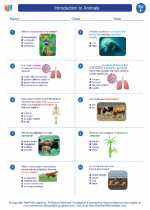Adrenocorticotropic Hormone (ACTH)
What is ACTH?
Adrenocorticotropic hormone (ACTH) is a hormone produced by the pituitary gland, located at the base of the brain. It is part of the hypothalamic-pituitary-adrenal (HPA) axis, which is responsible for the body's response to stress and the regulation of various physiological processes.
Functions of ACTH
ACTH stimulates the adrenal glands, which are located on top of the kidneys, to produce and release cortisol, a steroid hormone. Cortisol helps regulate metabolism, immune function, and the body's response to stress. ACTH also plays a role in the production of other adrenal hormones such as aldosterone and dehydroepiandrosterone (DHEA).
Regulation of ACTH
The production and release of ACTH are regulated by the hypothalamus. The hypothalamus secretes corticotropin-releasing hormone (CRH), which stimulates the pituitary gland to release ACTH. In turn, ACTH stimulates the adrenal glands to produce cortisol. Once the cortisol levels in the blood reach a certain threshold, it signals the hypothalamus and pituitary gland to decrease the production of CRH and ACTH, thus maintaining a delicate balance of cortisol in the body.
Role in Stress Response
During times of stress, such as physical injury, illness, or emotional strain, the HPA axis is activated, leading to an increase in ACTH and cortisol levels. This helps the body cope with the stressor by increasing energy availability and suppressing non-essential functions, such as the immune response and reproductive system, temporarily.
Disorders Related to ACTH
Imbalances in the production and release of ACTH can lead to various disorders. For example, Cushing's syndrome is a condition characterized by excessive levels of cortisol, often caused by an overproduction of ACTH. On the other hand, a deficiency in ACTH production can result in Addison's disease, which is characterized by low cortisol levels and symptoms such as fatigue, weight loss, and low blood pressure.
.◂Science Worksheets and Study Guides Sixth Grade. Introduction to Animals

 Activity Lesson
Activity Lesson
 Worksheet/Answer key
Worksheet/Answer key
 Worksheet/Answer key
Worksheet/Answer key
 Worksheet/Answer key
Worksheet/Answer key
 Vocabulary/Answer key
Vocabulary/Answer key
 Vocabulary/Answer key
Vocabulary/Answer key
 Vocabulary/Answer key
Vocabulary/Answer key
 Vocabulary/Answer key
Vocabulary/Answer key
